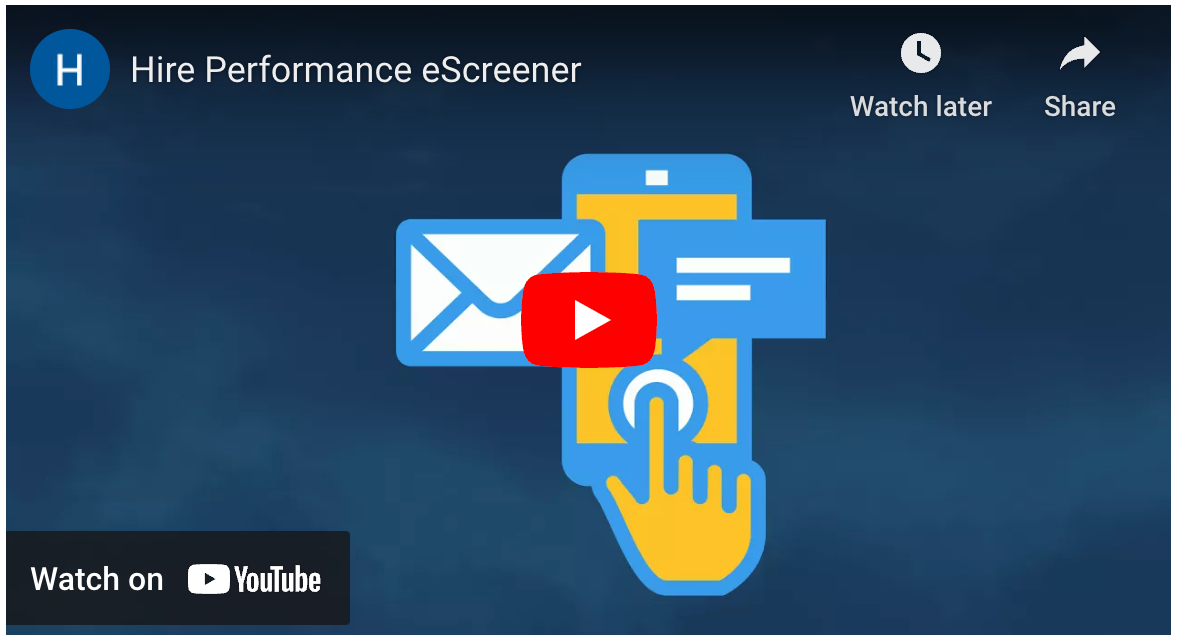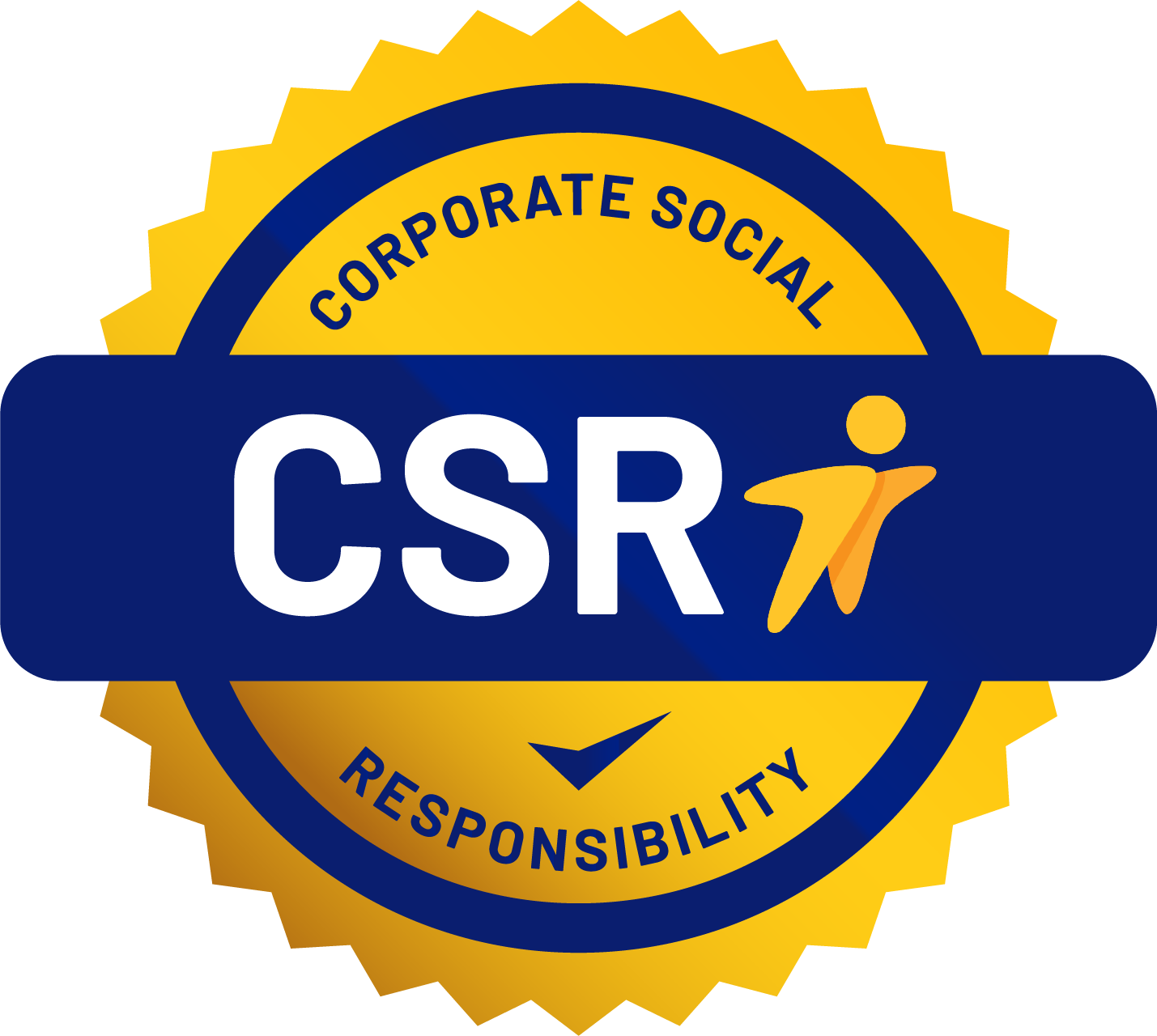How Social Media Can Impact Your Job Opportunities
Tim Hardie • October 25, 2023
Social media serves as a powerful reflection of your personal and professional identity. Employers are increasingly turning to social media screenings to gain deeper insights into job candidates before making hiring decisions.
In this blog post, we'll explore the critical connection between your social media activity and job opportunities. We'll also discuss what a social media screen is, an individual’s rights when being screened, why employers conduct social media screens, which platforms employers commonly check, and valuable tips on maintaining a clean online record.
What Is a Social Media Screen?
A social media screen, or social media background check, is the process by which potential employers examine a job applicant or current employee's online presence across various social media platforms.
Its purpose is to gain insights into the candidate's character, values, behaviour, and qualifications beyond what is typically revealed through resumes, interviews, and references. Social media screenings for employment are becoming increasingly common practice in the professional world.
Are Social Media Checks Included in Traditional Background Checks?
Traditional background checks do not include social media checks. Typically, a background check will include employment history, credit information, and legal history.
Social media checks are a separate paid service that employers may opt to perform on a job candidate or current employee.
Know Your Rights
While a social media check is not illegal, as a job candidate or employee you are protected by laws and regulations. Employers must conduct social media checks in compliance with privacy laws, ensuring that they respect an individual’s rights to privacy and fairness.
Employers are also required to adhere to human rights legislation that prohibits them from discriminating against a candidate based on protected characteristics, including race, religion, sex, age, disability, and other characteristics.
Candidates have the right to be informed about the screening process, provide consent before any checks are conducted, and know which social media platforms will be examined. If adverse hiring decisions are made based on social media findings, candidates have the right to be informed and, in some cases, may request access to the information used to make the decision.
Additionally, candidates have the right to dispute any inaccurate or misleading information uncovered during the social media background check.
It’s important to note that employers can check publicly-available information found online but candidates and employees should be cautious of employers who request access to private accounts. Most social media platforms actively warn users against sharing their password or login credentials with other parties – and employers are no different.
Why Employers Conduct Social Media Checks
There are several reasons that employers conduct social media checks on candidates and employees.
These reasons include:
- Assessing Cultural Fit: Employers want to ensure that an individual’s values and behaviour align with the company's culture and core values.
- Professionalism Evaluation: Employers use social media to gauge a candidate's professionalism, ethics, and overall suitability for a role.
- Risk Mitigation: Employers seek to minimize the risk of hiring individuals whose online actions may harm the company's reputation, create security concerns, engage in unethical behaviour, or create a toxic work environment.
- Red Flag Identification: Social media screens help identify potential red flags, such as inappropriate or offensive content, illegal activities, and discrepancies in qualifications.
- Verification of Qualifications: Social media serves as a validation source for a candidate's qualifications and professional background, allowing employers to verify claims made on resumes and in interviews.
- Legal and Ethical Compliance: Conducting social media checks in compliance with relevant laws demonstrates a commitment to thorough due diligence, especially in roles that deal with vulnerable populations or access to sensitive information.
A social media check helps employers make informed hiring decisions, protect their organization’s reputation, and create a workforce that aligns with their values and goals.
The Importance of Keeping a Clean Social Media Record
According to multiple surveys and studies, social media screening has been deemed an acceptable way to vet candidates and employees by the majority of hiring professionals.
As a job candidate, you can also stand out to employers by building a professional online presence. Showcasing your industry connections and engagement, qualifications, accomplishments, portfolio, positive personality traits, and professionalism online can help you make a positive impression on hiring managers. This can give employers a reason to hire you and a glimpse into whether or not you are the right fit for their organization.
Additionally,
78% of employers believe that current employees should maintain a work-appropriate social media profile. As such, keeping a clean social media record is key to not only securing employment but keeping it.
Which Social Media Platforms Are Commonly Checked?
While the specific platforms employers check can vary, you can expect most employers to check the current most popular social media platforms.
These include:
- LinkedIn: LinkedIn is a primary platform for professional networking. Employers typically assess your LinkedIn profile for work history, endorsements, recommendations, and any industry-related content you share.
- Facebook: Facebook is often checked to assess a candidate's personal life and interests. Employers look for inappropriate or unprofessional posts, as well as insights into the candidate's personality.
- X (Formerly Twitter): X can provide insights into your opinions, industry engagement, and communication skills. Employers may scrutinize your tweets for relevant content, but they also look for any controversial or offensive posts.
- Instagram: Instagram offers a glimpse into your personal life, hobbies, and interests. While it can be more personal, employers may still review your content to ensure it aligns with their values and expectations.
- Other Platforms: Some employers may explore other platforms like YouTube, TikTok, Whatsapp, or personal blogs if they believe these platforms contain relevant information about a candidate.
Generally speaking, any social media profile that is connected to your name and searchable via the internet may be checked.
How to Maintain a Clean Social Media Record
Keeping a clean social media record is critical in order to pass social media screens. There are several ways that job candidates and current employees can keep a clean social media record.
These include:
- Privacy Settings: Review and adjust your privacy settings on social media platforms. Customize who can view your posts and information, and restrict access to personal details for the public.
- Google Yourself: Perform a self-search to see what information about you is available online. This helps you identify and manage any public information that may affect your professional image. Consider also setting up Google alerts for your name, which can keep you up to date with new search results that may affect your online persona. If something comes up that is an issue, you can work with companies to remove this information online.
- Regular Content Audit: Frequently review your social media posts, comments, photos, and shared content. Remove or hide any material that may be perceived as unprofessional, offensive, or controversial.
- Avoid Oversharing: Maintain a balance between authenticity and privacy. Avoid sharing overly personal information, grievances, or intimate details on public profiles.
- Be Mindful of Political and Controversial Views: Express your opinions thoughtfully and respectfully. Avoid using offensive language or personal attacks when discussing political or controversial topics.
- Think Before Posting: Before posting anything, pause and consider the potential consequences. Ask yourself if the content aligns with your professional image and values.
- Separate Personal and Professional Accounts: Consider creating separate accounts for personal and professional use. Use the professional account for career-related content and maintain a more private personal account for friends and family.
- Highlight Your Achievements and Interests: Use your social media profiles to showcase your professional achievements, interests, and hobbies. This can help convey a positive and well-rounded image to potential employers.
- Seek Recommendations and Endorsements: On platforms like LinkedIn, encourage colleagues, supervisors, or mentors to provide recommendations and endorsements. Positive feedback from professional contacts can boost your credibility.
- Be Mindful of Who You Follow & Friend: Employers may also take note of how the people you follow and are friends with interact with your content. Look out for any accounts that are posting inappropriate comments on your posts or spamming your social media – whether it be due to hacking or another reason. Additionally, the content shared by your online network can reflect on you, so choose your friends and followers wisely.
These tips not only benefit job seekers, but can help existing employees in the event that your current employer conducts a social media check or any future employers.
Types of Posts & Comments to Avoid
Generally speaking, most employers look for what they deem to be red flags. While this may vary by company and industry standards, there are some posts and comments that should always be avoided.
These include:
- Offensive or Discriminatory Content: Avoid any posts that contain offensive language, slurs, or discriminatory remarks regarding race, gender, religion, or other sensitive topics.
- Controversial Opinions: Be cautious when sharing controversial opinions, especially if they involve politics, religion, or social issues. Express your views respectfully and considerately.
- Illegal Activities: Never post content related to illegal activities, including drug use, harassment, or any actions that may violate the law.
- Inappropriate Photos or Comments: Refrain from sharing explicit or inappropriate photos, and avoid making inappropriate comments or jokes.
- Negative Comments About Previous Employers: Resist the urge to vent frustrations or make negative comments about past or current employers, coworkers, or clients.
The most important thing to remember is to avoid posting anything violent, profane, explicit, or illegal on social media as these will always be identified as red flags.
Think Twice Before Erasing Your Profile
As candidates and employees assess whether or not their posts are appropriate and professional, they may consider deleting their social media profiles as a quick and easy solution. But, that might not be the best course of action.
Not only can erasing or deleting your profile send a signal to employers that you have something to hide, but your profiles may still be searchable on the internet. For example, LinkedIn and Instagram accounts can show up on Google searches even after it has been deleted on a cached basis.
Furthermore, some employers may feel less inclined to contact a candidate for an interview if they cannot find the candidate online. As such, it’s better to focus on maintaining a clean social media record instead of erasing your social media footprint.
Managing Your Digital Footprint for Career Success
Today, it is critical to keep your personal social media profiles professional and appropriate to not only secure a new job but to keep it once you’ve been hired. By proactively managing your digital footprint, being mindful of what you post, and curating your online image, you can increase your chances of presenting a positive and appealing professional profile to potential employers.
Remember that the internet never forgets, so crafting a clean and professional online record is an investment in your future career success.
Learn More About Social Media Background Checks
Hire Performance conducts thorough social media background checks on behalf of employers built on the principles of consent and proper notice. Our comprehensive screening service respects candidates’ rights to privacy and fairness, in accordance with laws and regulations. Visit our Social Media Background Check page to learn more about how our social media screens can help match you with the right employer.

Industry Leading Technology for Background Checks & Screening
eScreener uses Kount Identity Verification™ technology to verify identity with confidence. This technology cross checks applicant information against Equifax and 3rd party data sources to validate an identity and to determine whether that identity has been reported as misused or associated with potential fraudulent activity. This is done in real time by accessing millions of records, providing instant results in our eScreener.
WHY CHOOSE HIRE PERFORMANCE?
Pre-Employment Screening Benefits
Our industry leading expertise and cutting edge technology help organizations detect potential risks such as resume fraud, criminal convictions, and past terminations.












